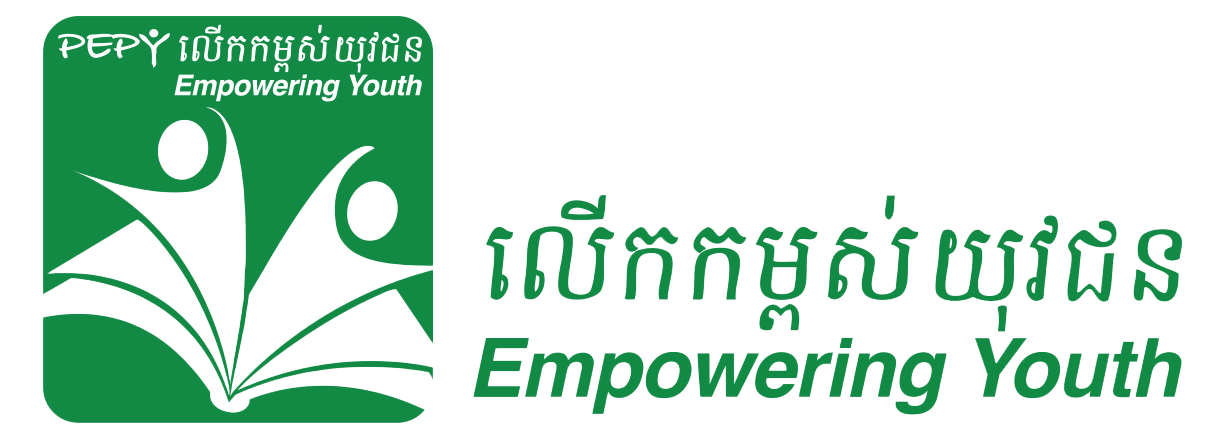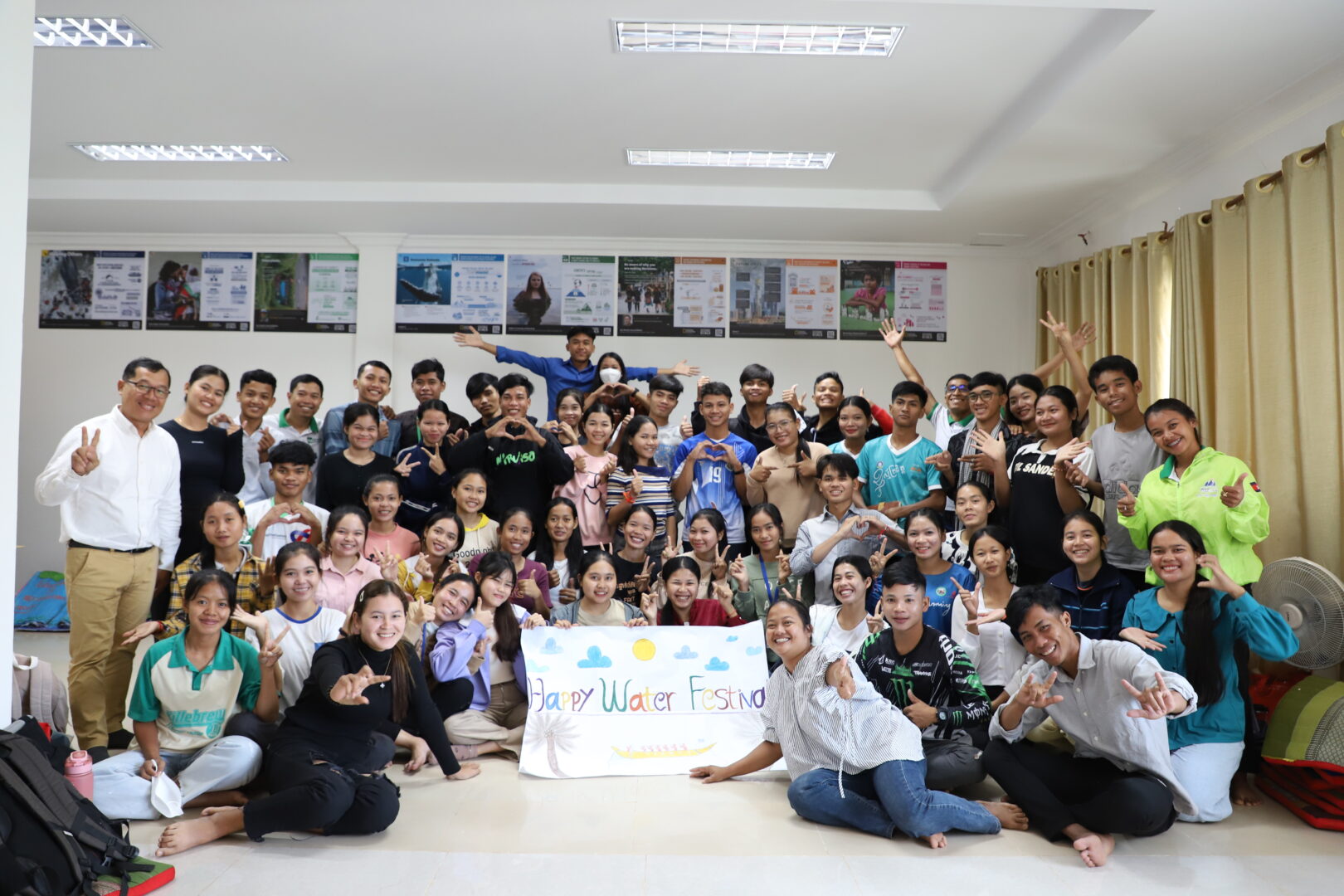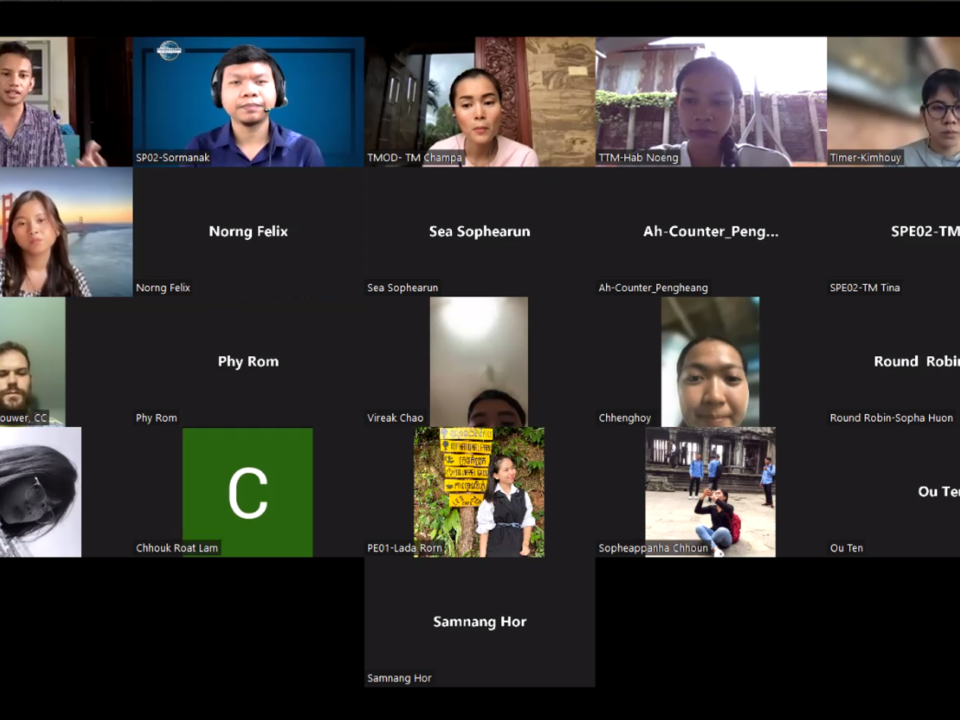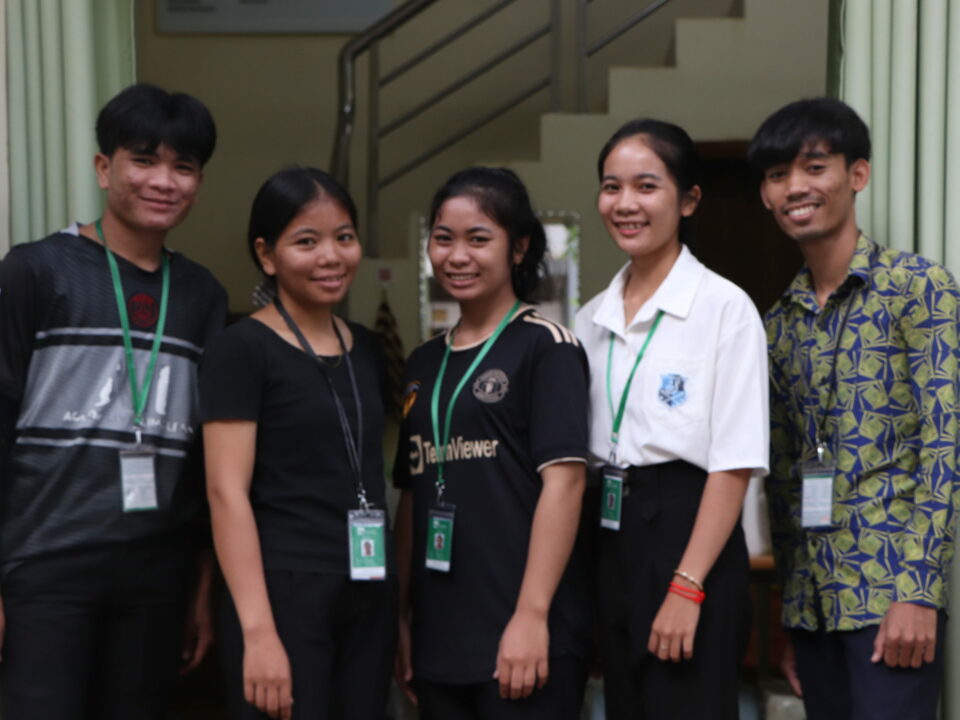What ELSE does PEPY do?
April 21, 2009What ELSE? — XO Computer Information Sharing
April 23, 2009By Daniela Papi – PEPY Executive Director
This is the second post in a series about what ELSE PEPY does. Click here for the first post.
1) Early Literacy Books – One of the keys to learning to read is getting books at the right level into the learners hands, or so my mother, an educator for over 30 years, tells me. I know this to be true by watching the increasing pace of the growth in reading abilities in Chanleas Dai once we began to increase the early reading material available to students. We have noticed that there is a distinct lack of reading material for early readers. There are books which say “Gaw, Kaw, Go, Ko, Ngo”, the equivalent of the English Alphabet, and then there are books with long, non-predictable sentences. The leveled readers of my youth, with predictive text and matching pictures, are not available to young readers in Cambodia. So we decided to change that. We created two of our own early reader titles and are planning to make more. These are very basic books with pictures of locally available material which were designed specifically for the students of Chanleas Dai Primary School showing their uniforms and school as the model for the book’s classrooms. This month, Maria Perez (of www.totodesign.com who designed these books) will be traveling to Cambodia to work with our very own artist and author in training, Thavry Thul (of www.thavry.com) to help design additional early readers for kindergarten and grade 1 classrooms.
In our search for early literacy books, we came across a related project by a group called BETT, a Belgian organization also working in Siem Reap. They are designing an early literacy series for grades 1 and 2 which are developed with children’s learning patterns in mind. They books are written in Khmer (not written in English and then translated which is often a problem in developing early literacy materials as words which are easy in one language are not necessarily so in another). In English, it would be easy to find a list of the most commonly used words in our vocabulary, but this type of research had not yet be done in Khmer, so BETT had to start with this research themselves to ensure that these books were designed in the best way possible for students to learn. The team spent months initially living in rural Cambodia, tracking the most commonly used words and items available tracking what words young readers learn in their daily encounters. The books are designed to use vocabulary all students would already understand with stories structured around their home and community, local and national festivals, and locally available products.
Click below to read more and see a picture of one of our PEPY books!
PEPY has teamed up with BETT in reproducing these books and getting information about these materials out throughout Cambodia. In addition, we are an implementing partner in the second phase of this program: grades 3-6. Rather than create all new material for grades 3-6 and to save both money and time, BETT and PEPY are working to take the books already available in Cambodia and “level” those. This is of course impossible and at some point becomes subjective as these books were not designed to be leveled and in many cases have concept which would not be understandable to young readers or vocabulary which is too difficult. Knowing that the task we set out to do would be impossible to perfect, we made guidelines to help us narrow our book choices. With a process led by Shannon O’Kane and BETT’s team of Cambodian and foreign consultants, we matched the new Cambodian curriculum with the books we could find, interviewed teachers and librarians, did basic translations of hundreds of books, dropped books with inappropriate content, and came up with a list of about 30 books for each grade level 3-6. From there, PEPY and BETT are working to create two lesson plans for each of these books which will be incorporated into trainings for each of the teachers in the classroom library program. If this program is successful, BETT will look to get this training integrated into the Provincial Teacher Training College curriculum, giving all future teachers access to this program.
If anyone is interested in purchasing Khmer early literacy materials, they can contact us by writing to “book” at our pepyride dot org email address. We are hoping that, through our classroom library project and other partnerships, we will be able to get these books out to schools across the country.




